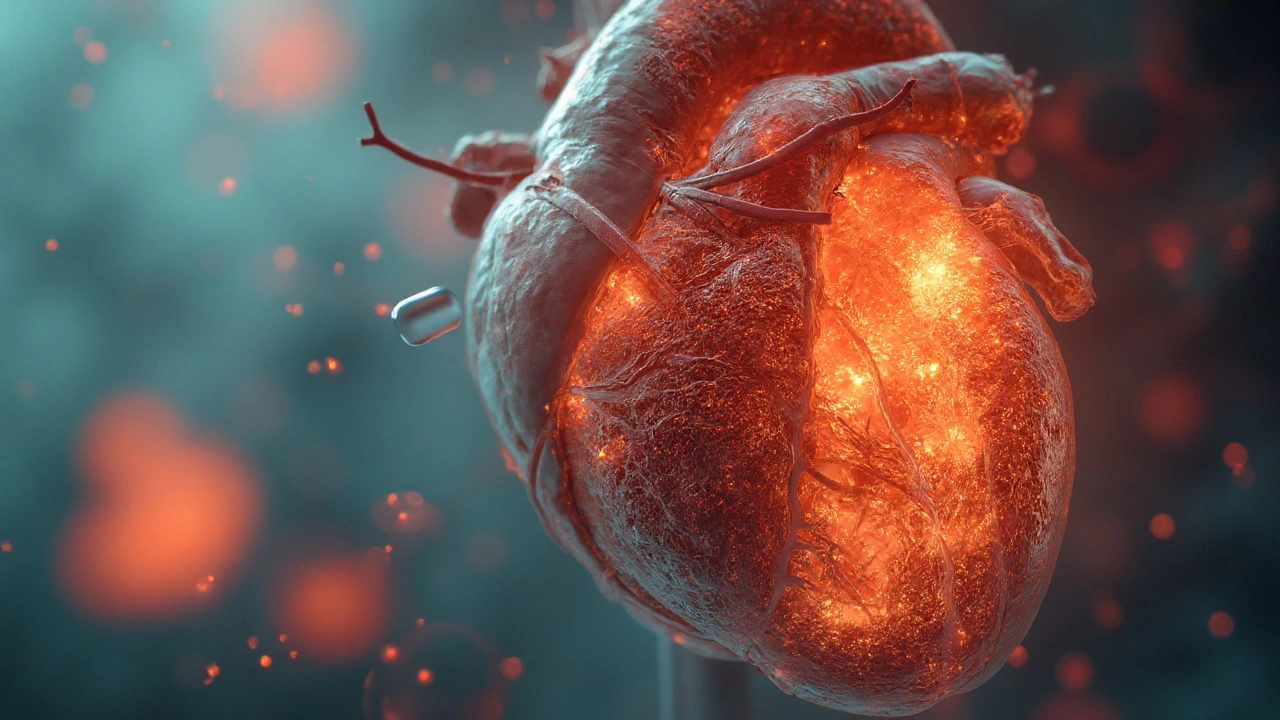Ever wonder why your heart never stops? It's because the heart has a super‑efficient energy system called myocardial metabolism. In plain terms, this is how heart cells turn food into the power they need to keep beating 24/7. Understanding the basics can help you make choices that support a healthy heart.
The heart mainly uses two fuels: fatty acids and glucose. When you eat a balanced diet, your bloodstream carries fatty acids straight to heart cells. Those cells break the fats down in tiny power plants called mitochondria, releasing lots of energy. Glucose, the sugar from carbs, is a backup fuel that the heart can switch to when it needs quick energy, like during intense exercise.
Oxygen is the third player. Without enough oxygen, the heart can't turn fats or glucose into usable energy, and you start feeling shortness of breath or chest discomfort. That's why conditions that lower blood oxygen, like sleep apnea, can hurt heart metabolism.
Hormones also call the shots. Insulin helps move glucose into heart cells, while adrenaline ramps up fatty‑acid use during stress. When these hormone signals get messed up—think insulin resistance—you can see a shift in how the heart gets its fuel, which may lead to long‑term problems.
Want to keep your heart’s engine running smoothly? Here are a few everyday moves that make a real difference.
Eat the right mix. Aim for a diet rich in omega‑3 fats (found in fish, walnuts, flaxseed) and moderate carbs. Omega‑3s help the heart use fatty acids efficiently, while a balanced carb intake keeps glucose ready for emergencies.
Move regularly. Even a brisk 30‑minute walk can improve how heart cells handle both fats and glucose. Exercise trains mitochondria to become more effective, meaning the heart needs less fuel to do the same work.
Control blood sugar. If you have diabetes or pre‑diabetes, keep your A1C in check. Stable blood sugar prevents the heart from over‑relying on glucose, which can wear out the metabolic system.
Stay hydrated. Dehydration reduces blood volume, making it harder for oxygen and nutrients to reach the heart. Drinking water throughout the day supports optimal metabolism.
Limit smoking and excessive alcohol. Both habits damage mitochondria and mess up oxygen delivery. Cutting them out gives the heart a better environment to convert fuel into energy.
Finally, regular check‑ups matter. Your doctor can run tests that show how well your heart is metabolizing fats and sugars. Early detection of any imbalance lets you tweak lifestyle or medication before problems grow.In a nutshell, myocardial metabolism is the heart’s way of turning food and oxygen into the nonstop beat you feel. By eating smart, staying active, and managing blood sugar, you give your heart the best chance to keep running efficiently for years to come.

Explore how trimetazidine improves heart function in cardiac patients by shifting metabolism, reducing ischemia, and complementing standard therapies.
